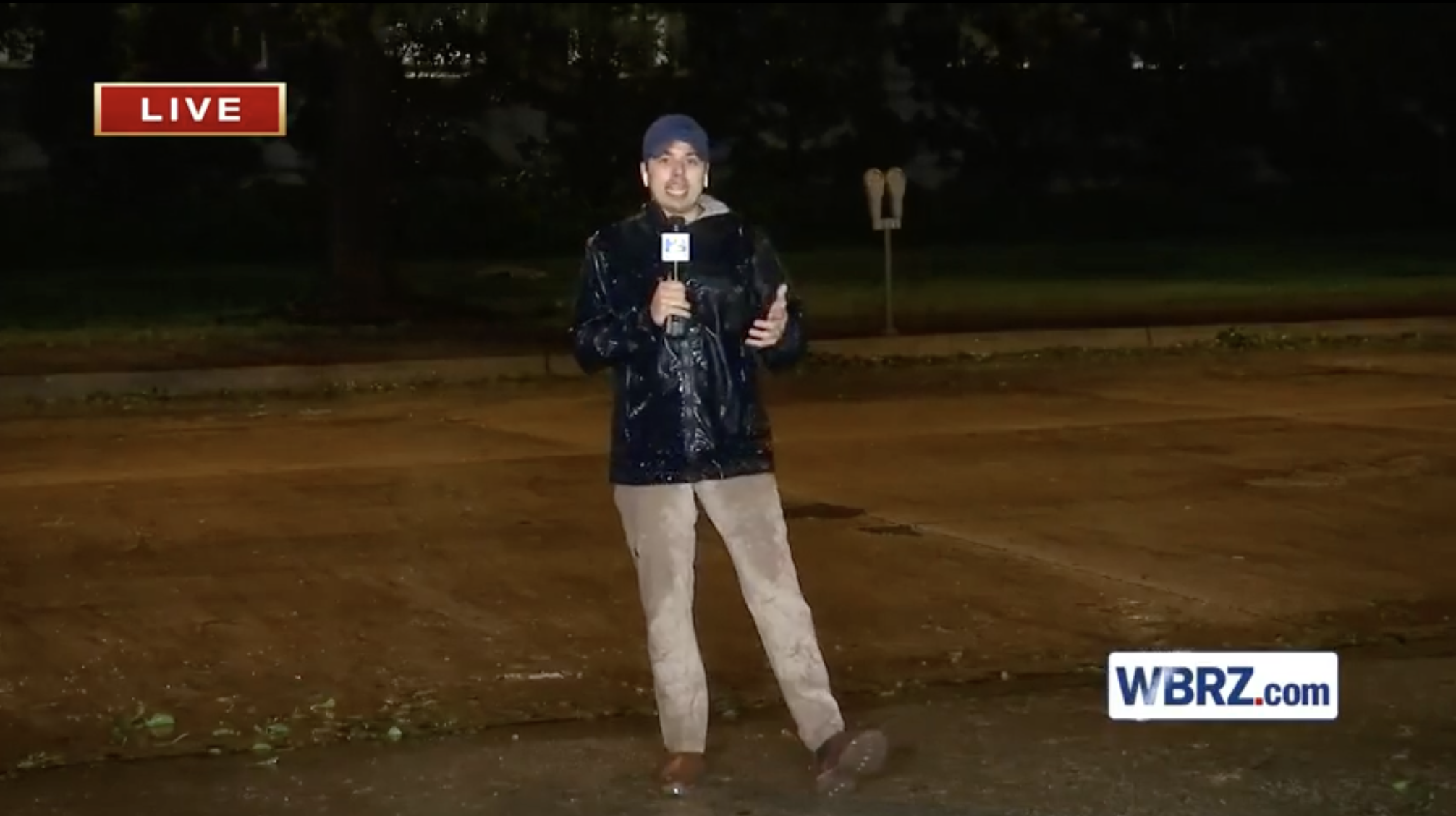WBRZ’s Johnston von Springer talks the effects of Hurricane Ida in Baton Rouge
Whether you decided to stay or go, you likely weren’t riding out Hurricane Ida’s devastating weather in the middle of a downtown Baton Rouge street. That would be crazy, right? But for news reporters like WBRZ’s Johnston von Springer, that’s the call of duty.
Fresh off of a 17-hour shift covering Ida from landfall to its downgrading—finally—to a tropical storm, von Springer and the rest of our local news crews were running on adrenaline and a love for the city they call home.
“It definitely wasn’t a normal shift,” von Springer notes. “But all of us acknowledged that we did fare better than expected, and that made things a little easier.”
Von Springer arrived at the station just as the storm made landfall. From there, he headed to the shelter at Southern University and then downtown until around midnight.
“I felt the brunt of the wind downtown,” he says. “Even though there wasn’t much rain, because the wind was so strong, it felt like the rain was stinging my face.”
After the storm subsided somewhat, von Springer and his cameraman, Rod McKee, made their way to LSU campus.
“LSU was chaos,” he explains. “From U High to going down the hill at Tiger Stadium, there were lots of branches and debris. At the School of Music, there was a copper roof that had blown off.”
All along Highland Road, down limbs and power lines were the norm. And on Perkins Road, power was out but there was some pockets of power.
“I was surprised,” says von Springer. “But then I looked right towards College Drive and it was just black.”
Alongside the LSU lakes, even more branches, trees and lines were down. However, the low hum of generators was prevalent, and as morning broke, people were making quick work of their leaf-covered driveways.
“I feel like people run on adrenaline during these sorts of events,” von Springer says. “With night storms, it’s always just getting to the day–that’s when you get a lot more reports of everything that has happened. That’s when it gets hard. Then it becomes about the people, the humans behind the damage.”
As the days drag on and the rescue efforts move to restoration efforts, its the job of people like von Springer and the rest of our local newscasters to keep this tragedy and the people of our state in the forefront of minds far outside of their viewership.
“I don’t always feel like I’m really offering a service,” says von Springer. “But in unfolding situations like weather or the pandemic or topics that give people anxiety, being able to give people that rapidly changing information to make them feel better is so rewarding.”
Follow along with Johnston von Springer on Twitter here. And tune into WBRZ for continuing updates.












